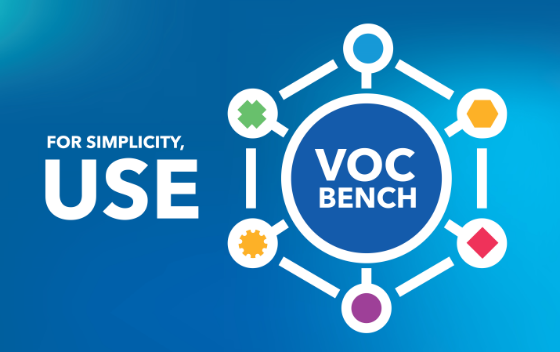VocBench: Semantic technologies for data management
Semantic technologies boost the value of data by making it computer-friendly. They allow data to be accessed, linked, and automatically analysed by IT systems, thereby paving way for smart IT applications and artificial intelligence. The EU institutions, agencies and bodies are invited to reuse the existing semantic assets and to benefit from a powerful semantic tool, VocBench, developed with the funding support of the ISA² programme of the European Commission and managed by the Publications Office of the European Union.
How can semantic technologies help you?
Imagine you want to classify content files by EU policy or wish to integrate country and currency codes into your systems. All the content you need for similar tasks is available on the EU Vocabularies website that features numerous semantic assets, such as EuroVoc, a multilingual, multidisciplinary thesaurus covering the activities of the EU, and also code lists, authority lists, taxonomies and other thesauri and models.
Managing reference data
If you are looking for an open source solution to create, update or maintain similar semantic assets, explore VocBench, a web-based, multilingual, collaborative development platform for managing and sharing reference data and controlled lists of codes and terms. VocBench facilitates the creation and maintenance of OWL ontologies, SKOS(/XL) thesauri, Ontolex-lemon lexicons and generic RDF datasets.
Being compliant with the W3C standards, VocBench is an ideal platform for organisations that seek to evolve in the creation and maintenance of reference data, and want to move towards the publication of Linked Open Data. Also, the platform offers a solution for centralising the management of controlled code and term lists to support interoperability.
Accessing VocBench
The OP can provide access to a corporate instance of VocBench to interested professionals working for EU institutions, agencies and bodies, or EU national public administrations (contact: OP-VOCBENCH@publications.europa.eu).


